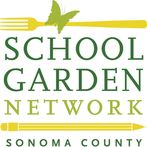Mission
School Garden Network grows healthy students, families, schools, and communities through garden-based education.
ImpactS
Since its inception in 2003, SGN has awarded over $260,000 in grant funding to 60 local schools. Fundraising and outreach for these programs continue to be top priorities.
Our Schoolyard Habitat Program to date has awarded over $80,000 in installation funding, and provided a total of 720 hours of consultation to 18 schools to make sure these projects were ecologically sound, well supported, and integrated into classroom instruction.
We allocated $20,000 dollars to 7 local schools deeply impacted by the 2017 wildfires and 2019 flooding. The recipients were:
1. Reibli Elementary School
2. Pathways Charter
3. Boys and Girls Club of Windsor
4. Mark West Community Preschool
5. Dunbar Elementary School
6. Guerneville Elementary School
7. Steele Lane Elementary School
Our Schoolyard Habitat Program to date has awarded over $80,000 in installation funding, and provided a total of 720 hours of consultation to 18 schools to make sure these projects were ecologically sound, well supported, and integrated into classroom instruction.
We allocated $20,000 dollars to 7 local schools deeply impacted by the 2017 wildfires and 2019 flooding. The recipients were:
1. Reibli Elementary School
2. Pathways Charter
3. Boys and Girls Club of Windsor
4. Mark West Community Preschool
5. Dunbar Elementary School
6. Guerneville Elementary School
7. Steele Lane Elementary School
Other projects include:
- Garden Coordinator Gatherings- We host seasonal gatherings as a opportunity for the school garden community to come together to share experiences, best practices, recipes, curriculum, activities, lessons and more.
- Healthy Roots-We provide school garden and nutrition mentoring, nutrition workshops for students & families, local farm tours, consultations, curriculum support, and more.
- Heirloom Seed Expo- Organize Kids Pavilion where school gardens are on displays, coordinate transportation stipends for schools, and organize the silent auction.
- School Partner Program- Free opportunity for schools to networking within the school garden community, access to free seeds & plants, and receive discounts from local business partnerships and on SGN workshops.
- Teen Apprentice Program – A summer program where teens obtain training and employment by participating in the Water Wise irrigation installations and providing garden maintenance to schools.
- SchoolYard Habitat– In partnership with Sonoma County Fish and Wildlife Services, SGN provides consulting and funding for habitat projects at school sites
- WaterWise Mini-Grants– In partnership with Harmony Farm Supply, we offer eligible schools free irrigation design, installation support and up to $400 in funding for a drip irrigation system.
why school gardens?
Within the last two hundred years, there has been a huge population shift from the country to the city. City dwellers are not familiar with the farm origins of their food, and children have fewer opportunities to learn from nature and rural life. Early twentieth century educators became interested in using school gardens to make up for these lost experiences. They valued hands-on learning in the school day, and teaching nurturing and thrifty habits through gardening.
These goals are even more important today. We can teach students to enjoy growing, cooking and eating fresh produce. This will provide them with life-long knowledge that will empower them to choose food that nourishes their body.
To bring the garden into the tightly scheduled school day, garden-based curriculum has been developed for most academic subjects, especially in elementary school. The most obvious connections are to science and nutrition, but gardens are also often used for teaching English, math, art and social science. In secondary school, a garden can be a laboratory for teaching environmental science, horticulture and culinary arts.
A history of the purposes behind school gardening can be found in City Bountiful: A History of Community Gardening in America, by Laura J. Lawson.
A history of the purposes behind school gardening can be found in City Bountiful: A History of Community Gardening in America, by Laura J. Lawson.
"When middle school students in large urban communities are given the opportunity to learn about ecology in a real-world context, they are more enthusiastic about attending school, make better grades, eat healthier food due to wiser food choices, and become more knowledgeable about natural processes."
J. Michael Murphy, an associate professor of psychology at Harvard Medical School
J. Michael Murphy, an associate professor of psychology at Harvard Medical School
